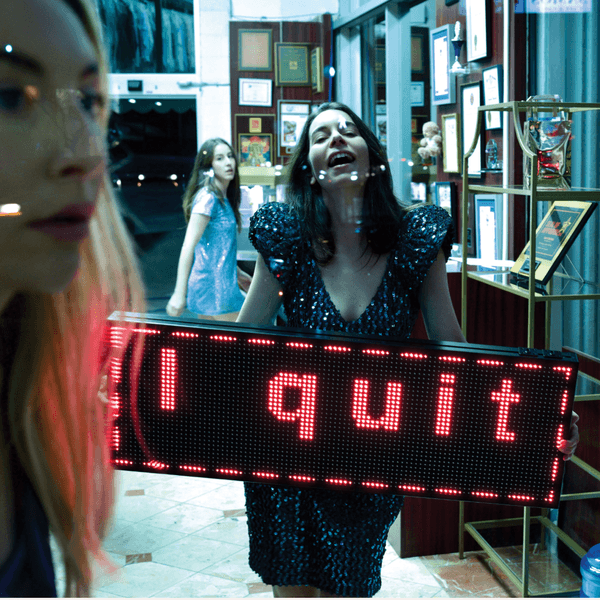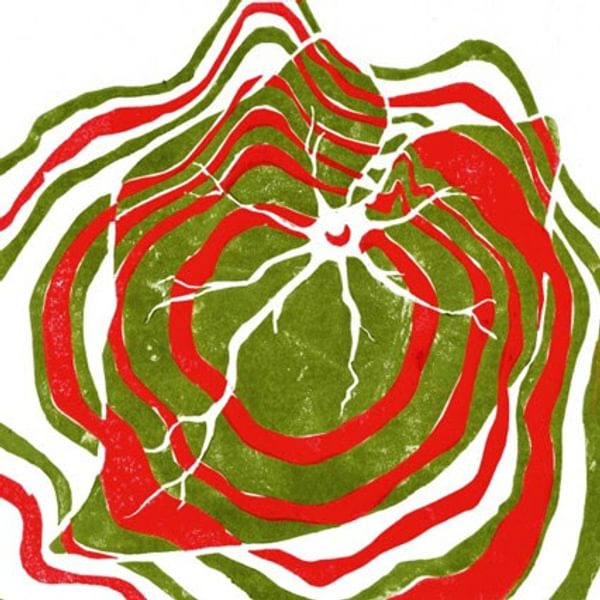
Track by Track :: Rock Plaza Central – …At The Moment of our Most Needing
We love Rock Plaza Central. They’ve been a bit quiet since they released their previous album, Are We Not Horses, a couple of years ago, to critical acclaim not just on a very young TLOBF, but also on Pitchfork. They’ve shed a few members, left their record label, but have returned with …At the Moment of our Most Needing, a stripped back, inspiring slice of Americana that adds plenty of Brass to their ramshackle sound.
With the album released in the U.S. this month, and a UK tour and release being muted, we got RPC main man Chris Eaton to provide us with some insight to the tracks on his latest masterpiece…
“I find the process of writing about our songs to be exhilarating and confusing and pointless. All at the same time. So much of what we’re trying to accomplish is a collaborative process with the listener, providing imagery and layers of my own life mixed with metaphor that can be interpreted and reinterpreted in many different ways, depending on the listener’s own background and present state of mine. So me trying to explain what the songs are about… well… ” – Chris Eaton June 2009.
Oh I Can
Touring lately, though, and playing the songs back to back with songs from Are We Not Horses and The World Was Hell to Us, I realize how often I talk about leaving home. There are so many assumed rules in life, and one of those growing up seemed to me to be that I would have to leave my home on the east coast (Sackville, New Brunswick) for a larger city if I wanted to make something of myself. Those handsome men, they will tell you that. And so you go off looking for adventure, with stars in your eyes, just because of the stories you’ve heard about “away.” That’s how Maritimers refer to non-Maritimers. They’re from away.
“I can bear a hill” is a line from Faulkner’s Light in August, which inspired a lot of this.
A Mule on Fire
One of my favourite lyrics from another song ended up being the title for this instrumental. There’s something so tragic and beautiful about that image for me. The mule just never stops working, even when everything – including himself – is burning down around him. It might best symbolize that simultaneous mix of hope and despair that I’m constantly trying to capture.
As a side note, one of my favourite things that I personally played is in this song, on the electric guitar. And while it sounds really cool, it’s purely the result of the string getting caught on the edge of the fret and then me trying to unhook it while everyone else is still playing.
Handsome Men
This was the first song written for the record. At least the chorus and verses. A lyric about handsome men had hit me from some jazz tune that I can no longer remember, and resurfaced when playing the tune to the rest of the band. I had also just seen There Will Be Blood, and related to it on many levels.
The bridge came later, sort of spontaneously in a performance. We’re mostly big fans of a Canadian band from the 90s called The Rheostatics, and one night started singing the lyrics from a song off their Whale Music album called “Queer”. I ended up rewriting all of that, but in a tip of the hat to how they used to frequently incorporate the lyrics from other Canadian songs and poems – a game I also like to play, using David Bowie and Alan Parsons Project on Are We Not Horses, among others – we kept the first line of “Father raged like a soldier,” then followed it with a Gordon Lightfoot reference, just to be über-Canadian. Again, a song about leaving: “The day he told me there was more to there than here.”
It’s fun to watch people dance to a rock song in a totally fucked up time signature.
O Lord, How Many Are My Foes
Originally came into being when hanging out with our friends Sgt Dunbar and the Hobo Banned in Albany, NY. We decided to sit around one day and record some stuff, and this came out, although most of the lyrics were pretty horrible (e.g. “Where’s the one that I love best, where’s the one who made this sweater vest”, and something about a magic bus), and I think the only lyrics that I kept were the first lines of every verse.
Good Enough
Part of this song has existed for some time. Or at least the lyrics have. The rabbit ‘neath the lion’s paw knows the world is good enough. And the sparrow in the housecat’s jaw sings the world is good enough. Or something like that. I think they even appear on a recording done at the home of No Love For Ned. My neighbourhood is amok with feral cats. Or at least outdoor cats. Millions of them. And I’m constantly trying to save the birds from them. But even in that horrible death, I’m sure the birds should realize that they had a lot of good times, and should not regret having been a bird.
Country C
Found an old live recording from the early where we suddenly did this, and it was so pretty and seemed to capture the mood of the album so exactly, with the right breath of air to the intensity around it, that we decided to do it again in the studio. I think it captures what a lot of people tell me they like about the band: that we’re just people playing music. No artifice of things built strategically track by track. Just four people moving their fingers together.
Them That Are Good…
When you then return to your home, after the hunt, empty-handed, how will people view you?
The Wrong Side of the Right and Holy Rider
I like to win. To an unhealthy degree. To the point where I will argue for no good reason, even if I don’t always think I’m right. I would like to stop that.
The Long Dead March
Scott had originally intended this to be called “The Strong Dead March”, after the poem by Walt Whitman. I actually mis-wrote it when submitting the titles to the CD designer, but then felt that the music was already so proud, and using the word strong would just be hitting you over the head. I think of it sort of like Lady Godiva, who is forced to go through town naked, but she bares the shame with such pride that everyone else ends up averting their eyes. A real companion piece to “Them That Are Good…” Scott also has other plans for it, and it will undoubtedly resurface again some day as the Strong Dead March on one of his own albums.
We Are Full of Light…
Where the album gets its title. Sometimes it’s hope that blinds us and steers us wrong, just when we need it most. Written the night before going into the studio. More fun playing music at the end.
Wherever You Are, I’m Home
Lover, you have left such a mark on my life, and improved it so immensely. Everyone in the world seems to be searching for something. Perhaps they have already found it.
The Hot Blind Earth
Another Faulkner quote to start the song (“like a wet seed wild in the hot blind earth”), and the “step crow child” comes from a mix of a Solomon Burke tune (or rather a Dylan tune, I think, as sung by Burke) and Crowchild Way in Calgary. In fact, there was a point when I thought the album was going to be called Crowciao, as an homage to the way that Burke says “child” in that song.
Get the Best Fit take on the week in music direct to your inbox every Friday








